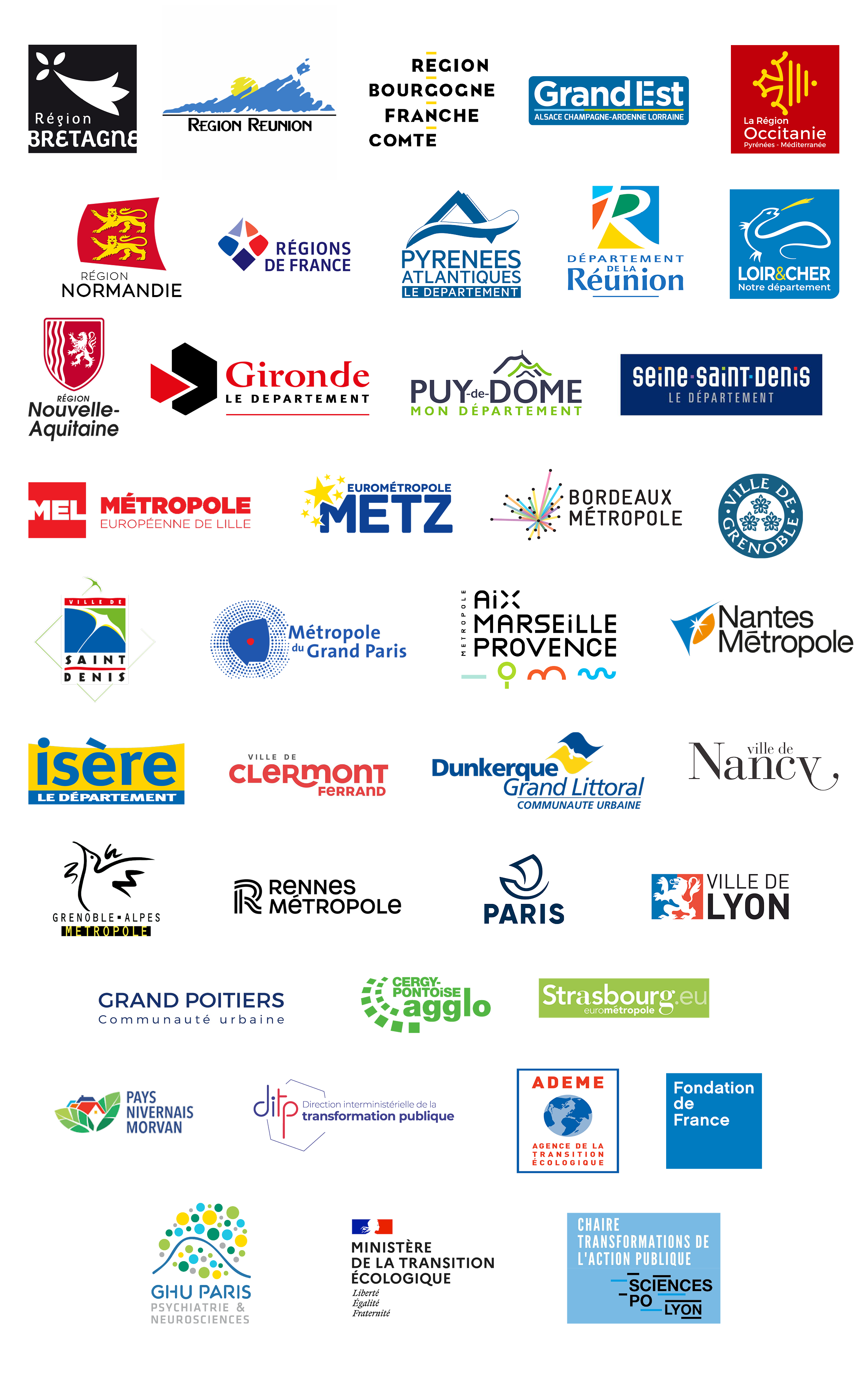Preamble / foreword
The 27th region is a “concrete utopia” whose objective is the transformation of public action. Since its creation, we have led a long term investigation on the transformation of public action. This investigation is based on several programs, from “Territories in residences” (2008) to “New Measurements” (2021), aims to better understand the roots of public action, how to transform it and what are the possible directions to do so. During all these years, we have learned a lot about transformation methods, ways to create new capacities within public organizations, and more recently to endow them with a more open governance, which allows them to carry more ambitious transformation objectives – especially from an ecological and social perspective. Today, in times of great uncertainty, we need to clarify where we are, and state more explicitly what kind of transformation we aim for and how we intend to contribute to it.
Our diagnosis: we must change the operating system of public administrations!
Our societies are not doing well: growing inequalities, endemic unemployment, housing crisis, growing distrust towards public institutions and democracy, conspiracy, green washing, pandemics, climate change and erosion of biodiversity… What else ? With the consequences of Covid19, many expected a new sense of collective awareness, followed by a wide-ranging response embodied by the many “green new deals” launched in Europe and around the world. Unfortunately these recovery plans perpetuate a model that struggles to take into account planetary limits and to truly reconciliate economy, ecology and social justice.
Today, the challenge is no longer to innovate, in the sense of applying new ideas, methods or technologies within an unchanged system. It is a question of redirecting this system towards another philosophy of progress, which is centered on human needs and respect for ecological limits, which mobilizes more social innovation and collective intelligence, able to address such issues in an anticipated and systemic way.
What about public stakeholders in this context ? Its role is neither to be just a bystander of this transformation, nor to simply accompany it. The public transformation effort should no longer be reduced to simplifying or modernizing administrative services on the surface. It must be reoriented towards more ambitious and deeper transformation objectives, towards the production of a narrative that is more mobilizing, and towards the creation of a “public policy fabric” better equipped to address current issues.
Our vision: to generate new “public capacities”
Since there is little or no new imaginaries on public action and administration, our role is to fill this gap by opening new paths, playing an inspiring role and promoting the creation of movements and professional communities, in France and abroad. Our role is less to transform what already exists, than to contribute to the emergence of new “public capacities” within territories wishing to re-direct their model, to help them produce in vivo experiences and to create demonstrators based on the most inspiring practices identified in France, but also in Europe and around the world.
The theoretical starting points
To create these new “public capacities”, we rely on older as well as emerging theories, addressing the challenges of public transformation, governance, development models or local public management:
* An experimentalist paradigm for public transformation, based on trial and error, social innovation, empowerment, co-design and participatory design, and embodied in particular by public innovation labs, living labs, public and social R&D ecosystems, participatory investigation approaches;
* Forms of power and governance that are more open to citizens, more sustainable, respectful of non-humans and biodiversity, such as “public-commons” partnerships;
* The definition of new models of economic and social development based on relocation and on a new ecological and social contract, such as the “Community Wealth Building” (Scotland, North of England) or the “donut theory” (Amsterdam);
* The creation of new and more sustainable decision making tools and their integration into the management of public action, such as alternative indicators, modes of measurement and socio-environmental accounting models ;
Our positive biases
Having an ambition for systemic transformation does not mean that we seek to transform everything ourselves, or all at once! We do our best to meet certain pre-requisites:
* A territorial approach: favor local and territorial dynamics, and rely on local innovation capacity, i.e local communities and stakeholders ;
* Qualitative alliances: focus not only on technological infrastructures, but also on social and cooperation infrastructures (paying attention to the quality of cooperation, diversity of participants, democratic dimension, creation of shared resources);
* Systemic approaches: Strengthen the capacities of public stakeholders to meet these challenges systemically, in particular by valorising their support functions (HR, management, administration, finance, public buying, evaluation, etc.);
* Tangible experiences: starting from concrete field projects and tangible subjects (a new public equipment, neighborhoods, management tools …)
* A reflective posture: question our productions and our postures on a regular basis, produce controversies and looking for ways to overcome them
Our activities
To put our aims into practice, we design and run programs that combine various types of activities:
* Exploration: collectively explore, identify, document and analyze existing practices, inspiring for new forms of public transformation (Collaborative inquiry and training-action in France, Europe and more, production of hypotheses to be further tested)
* Experimentation: conduct experiments based on issues identified within the participating communities (action research, production and implementation of an experimentation protocol, coordination of series of experiments distributed between several local governments)
* Documentation, narratives: collectively document the progress of a program and its productions, narrate the process (Publication and open documentation, blogging and publication under Creative Commons license)
* Theorization: advancing our practices by linking them to theories in force in the human and social sciences (for example in the field of innovation, commons, social justice)



